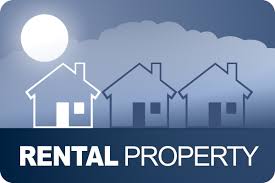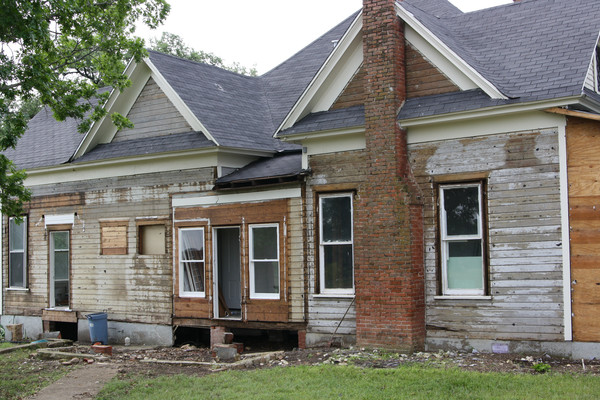10 Tips for Investing in Kamloops Rental Properties
Posted by Steve Harmer on Wednesday, May 25th, 2016 at 12:14pm.
The rental market is booming.
 Renters are turning to extended leases as a cost-effective alternative to save for their future home purchases. Plus, with the current crazy increases in property values in Vancouver and Toronto that are creating more and more renters on the market. The high demand for rentals yields increased profits for rental property owners who can charge higher rents. As always a local real estate agent will help you with your decisions and make the search for the right property easier.
Renters are turning to extended leases as a cost-effective alternative to save for their future home purchases. Plus, with the current crazy increases in property values in Vancouver and Toronto that are creating more and more renters on the market. The high demand for rentals yields increased profits for rental property owners who can charge higher rents. As always a local real estate agent will help you with your decisions and make the search for the right property easier.
Considering entering the property management industry? Use these 10 tips to get started.
Invest Long-Term
View purchasing a rental property as a long-term investment. A short stint in the property management industry is not likely to generate a much profit. Real estate investments typically start to produce cash flow after a few years. Time, money and effort are necessary exertions to generate a high return on investment (ROI).
Pick the Right Property
Invest in a property up to par with personal standards; don’t settle because it’s cheap. Take location, size and amenities into consideration. Check out comparable rentals online to see what other landlords and property management firms charge per square foot. Rental rates are based on zone, unit upgrades and communal facilities. The monthly rates help determine how affordable the property is for the buyer.
 Avoid Fixer Uppers
Avoid Fixer Uppers
Unless buyers are experienced in renovating large properties, they should purchase rentals as close to move-in condition as possible. Property managers should not attempt to make renovations prior to renting out units when they could be earning monthly rent to contribute to their profits. Upgrades often take longer and cost more than initially expected, so those without experience are likely to lose more time and money than anticipated. As long as buildings are structurally safe and clean, it’s better to start leasing units right away and upgrading as needed in the future. Consider purchasing an already occupied rental building. New homeowners can honor old leases and avoid the hassles of marketing to new tenants.
Invest Wisely
If a property seems too good to be true, it probably has underlying issues. Be smart and savvy in the real estate industry to protect capital against scammers. Hire a realtor to assist in the process of negotiating better deals and identifying red flags. Follow the property purchase protocol, which includes hiring an inspector to guarantee the building is up to code.
Research the Industry
Network with other property managers and read up on the local real estate market. Being knowledgeable on rental standards and trends can help proprietors gain an edge on the competition. The more educated a property manager is on local real estate, the lower the risk of a failed investment.
Start Early
It’s smart to begin investing when there is enough money for a down payment in the bank. However, buyers should reside in the cities where their investment properties are located. Typically, small-sized property owners live near investment properties in case of emergencies. However, living close by is not necessary if the titleholder hires a live-in landlord who maintains the building.
Look for Rising Neighborhoods
 Avoid investing in properties located in neighborhoods with multiple foreclosures or vacated residences. Although initially less expensive, these settings are not attractive to potential lessees. Consider areas where young professionals and other typical renters reside and work.
Avoid investing in properties located in neighborhoods with multiple foreclosures or vacated residences. Although initially less expensive, these settings are not attractive to potential lessees. Consider areas where young professionals and other typical renters reside and work.
Assess Risk
Determine the potential ROI before closing on a property. In order to calculate returns, add up rent income (minus expenses) and determine how much the property produces per year. Then, divide yearly income by the invested cash equity, which includes the initial deposit, closing costs and rehabilitation fees.
Don’t forget about net appreciation, which can add 1 to 2 percent return every year, after subtracting capital repairs and improvements. Adding these two percentages together (yearly ROI and net appreciation percent) gives property investors a rough idea of the ROI percentage they can expect to make in a typical year. The formula also helps gauge the rate at which a profit can be made.
Buy as Personal Residence
A buyer can purchase a home as an owner-occupant to receive the most affordable financing with a lower down payment. Owner-occupied properties must not be rented out during the first year of ownership, even if the owner is residing onsite. Future property managers can use this time to understand which features need fixing and updating in order to attract potential leaseholders. By taking care of issues ahead of time, tenants are likely to be more satisfied later when the leasing period begins.
Keep a Day Job
Prospective property managers should maintain or attempt to increase their current incomes in order to afford down payments and provide maintenance and repairs. Down the road, when the investment begins to turn a profit and a landlord decides to invest in additional properties, supplementary income may not be needed.
These 10 tips are good starting points for individuals looking to enter the real estate investment industry. Conduct heavy research to truly determine if this occupation is a good fit. The time, energy and money required to own and lease property is complicated – be well aware of potential risks before beginning the process.
© http://wellkeptwallet.com/2014/02/10-tips-for-investing-in-rental-properties/


